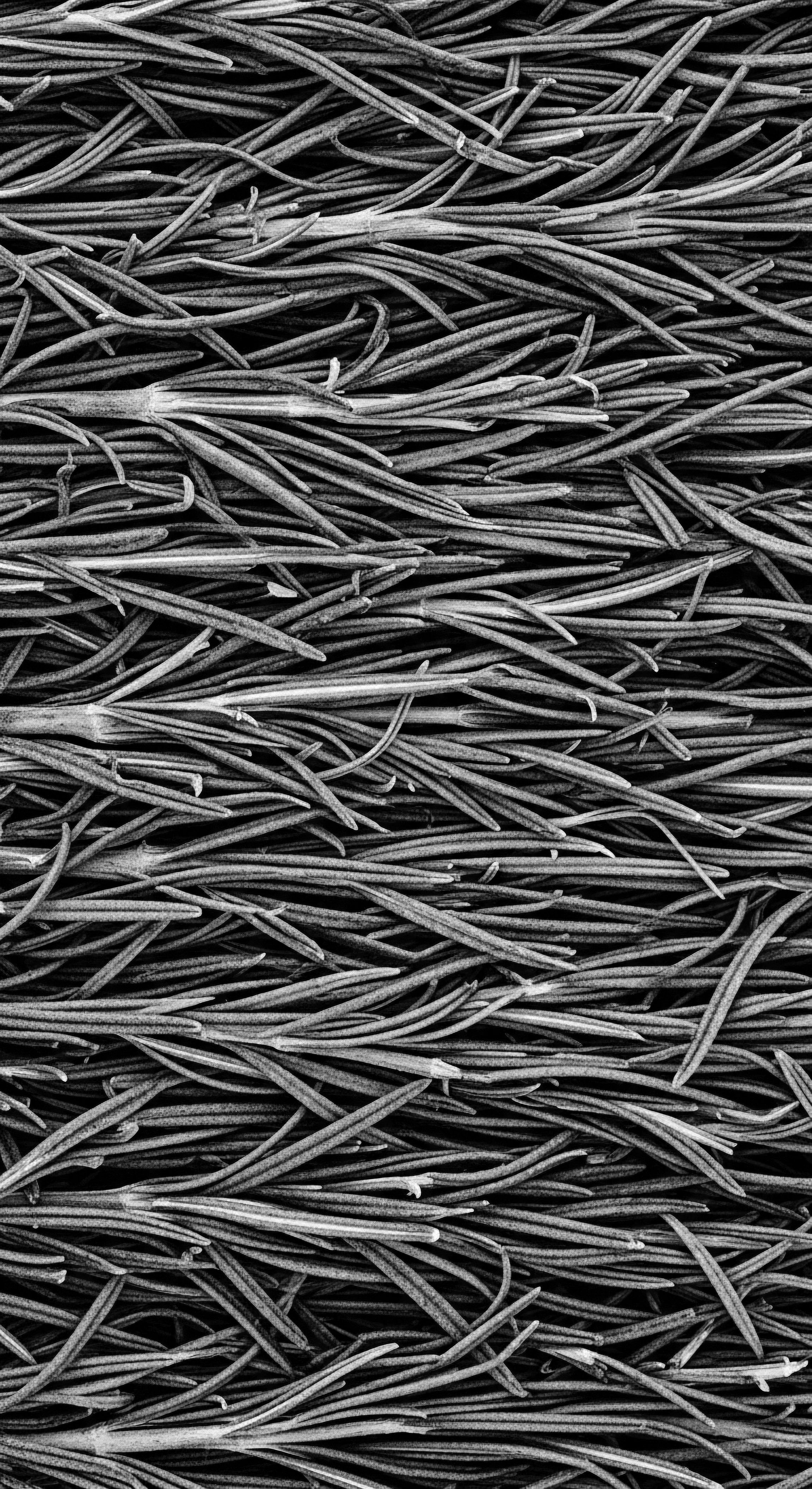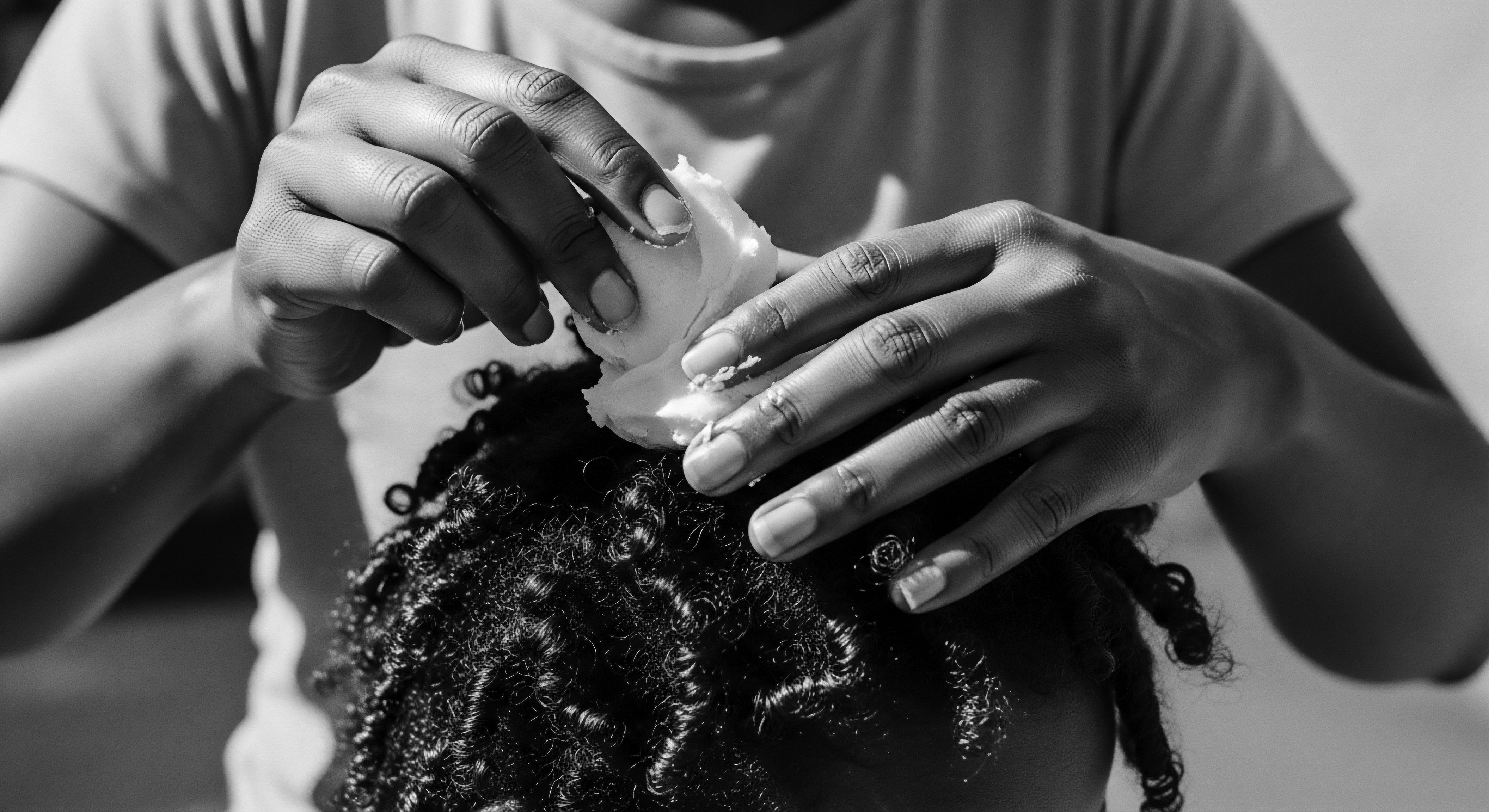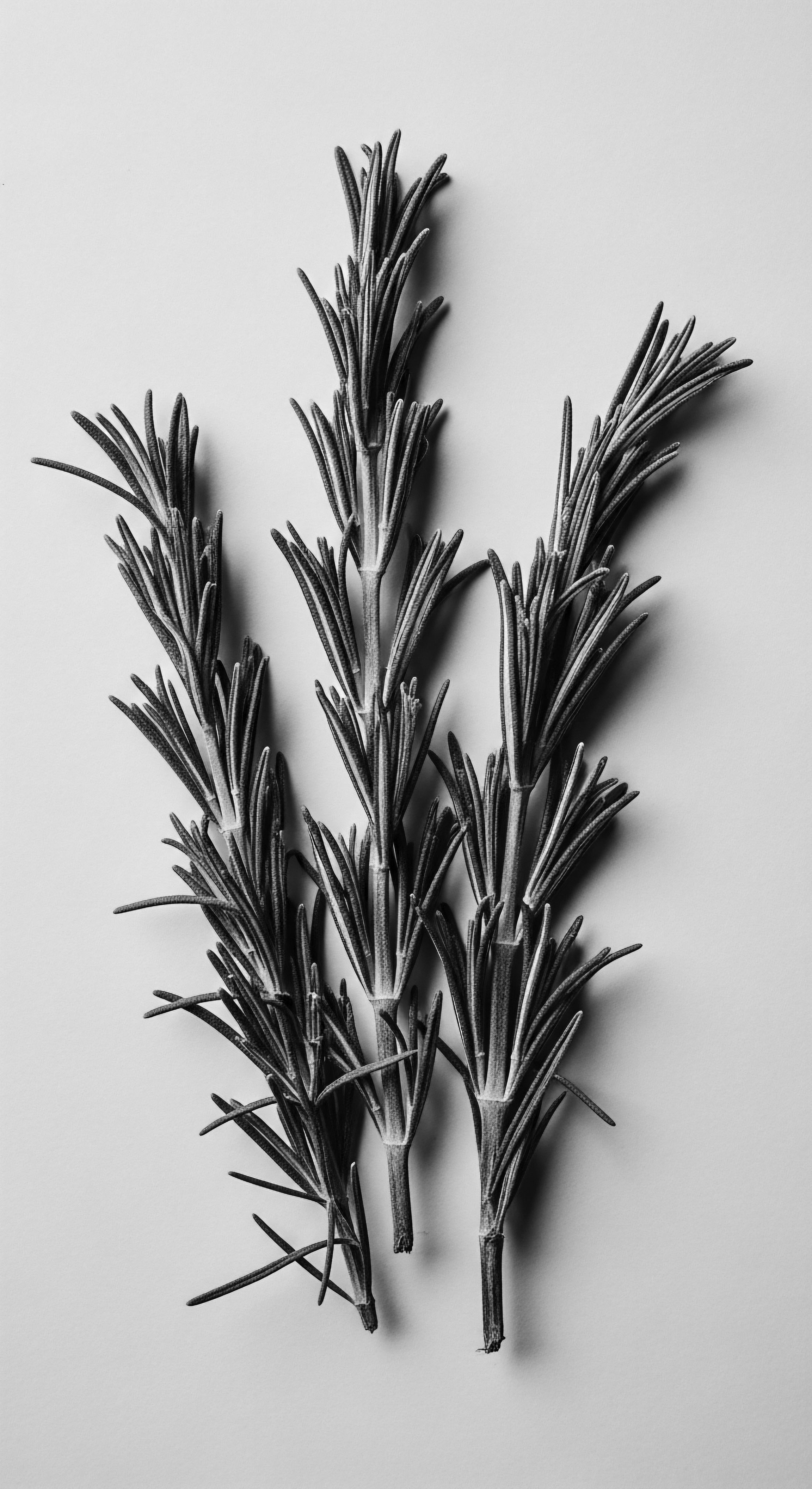
Fundamentals
The conversation surrounding hair, especially textured hair, is often a vibrant dialogue between personal experience and collective wisdom. Within this rich exchange, certain elements appear and reappear across generations and geographies, whispering tales of inherent potency. Among these, the compound known as Eugenol steps forward, a natural aromatic molecule primarily found in the dried flower buds of the clove tree, Syzygium aromaticum.
Its very mention conjures images of warming spices and ancient remedies, a testament to its long presence in human history. The definition of Eugenol Benefits, within the expansive realm of hair care, encompasses the various ways this remarkable component contributes to the vitality and health of hair, particularly for those with curls, coils, and waves.
From the molecular level, Eugenol is a phenylpropanoid, a type of organic compound known for its fragrant nature and biological activity. This distinctive scent, familiar from culinary traditions to ancestral healing practices, hints at a deeper chemical architecture. Its significance lies not solely in its aroma but in the inherent properties that have rendered it a revered element across diverse cultures for centuries.
For individuals navigating the intricate journey of textured hair care, understanding the fundamental meaning of Eugenol Benefits begins with appreciating its roots, both botanical and historical. It is an acknowledgment that the science of today often illuminates the profound insights of yesterday, revealing a continuous stream of knowledge regarding natural elements and their capacity to nurture.
Eugenol’s presence in various plant essential oils is a clue to its widespread application in traditional systems of well-being. Its natural occurrence suggests an inherent compatibility with biological processes, which ancestral practitioners observed and harnessed with great intuition. The clarification of Eugenol Benefits today often circles back to these foundational understandings, recognizing that the delicate balance of scalp ecosystems and the resilience of hair strands are intimately connected to such elemental compounds.
A core aspect of the definition of Eugenol Benefits rests upon its intrinsic characteristics, which include its capacity to act as an antimicrobial and antioxidant. These fundamental properties hold considerable weight when considering the unique needs of textured hair. Scalp environments, especially those beneath dense coils or intricate protective styles, can become susceptible to imbalances that affect overall hair health. The presence of microbes or the accumulation of oxidative stress can disrupt the delicate equilibrium required for robust growth and vibrant hair.
Eugenol offers a gentle yet powerful ally in maintaining this balance, thereby contributing to a foundation of strength from the very roots. Its simple efficacy, understood through generations, forms the initial layer of its complex meaning in the heritage of hair care.
Eugenol Benefits fundamentally refer to the advantages derived from this natural clove compound, primarily its capacity to nourish the scalp and fortify hair strands through its innate antimicrobial and antioxidant actions.

Elemental Biology of Eugenol
At its very source, Eugenol stands as a testament to the biological wonders of the natural world. It is the primary constituent responsible for the distinct aroma and many of the purported therapeutic effects of clove oil, often making up 70% or more of its composition. This particular chemical structure, a phenylpropanoid, grants it a spectrum of biological activities. The delineation of Eugenol Benefits commences with these microscopic interactions.
- Antioxidant Activity ❉ Eugenol possesses powerful antioxidant properties, acting as a scavenger of free radicals. These unstable molecules, generated by environmental stressors or metabolic processes, can inflict damage upon cellular structures, including those within hair follicles, potentially leading to premature aging of hair and hair loss. Eugenol’s presence offers a protective shield, safeguarding the delicate machinery of the scalp and encouraging optimal hair vitality.
- Antimicrobial and Antifungal Action ❉ A significant aspect of Eugenol’s profile is its efficacy against various microorganisms, including bacteria and fungi that can compromise scalp health. For many individuals with textured hair, scalp conditions such as dandruff, often caused by the fungus Malassezia furfur, present persistent challenges. The antimicrobial nature of Eugenol aids in creating a cleaner, more balanced scalp environment, reducing the discomfort of itchiness and flakiness.
- Anti-inflammatory Properties ❉ Inflammation of the scalp can significantly hinder the hair growth cycle and contribute to hair thinning. Eugenol has demonstrated anti-inflammatory capabilities, helping to soothe irritated scalp conditions. This calming effect helps maintain a healthy foundation for hair to flourish, addressing underlying irritations that can impede a thriving mane.

Echoes from the Source: Ancient Acknowledgments
Long before the advent of modern scientific inquiry, the potent attributes of cloves, and by extension, Eugenol, were recognized and woven into the fabric of daily life and healing across continents. The earliest interpretations of Eugenol Benefits were not articulated in chemical formulas but in experiential observations and inherited wisdom. The practice of integrating cloves into various preparations for overall well-being and hair health emerged organically from generations of observation and application.
In the rich traditions of Ayurveda, the ancient Indian system of medicine, cloves have held a prominent place for millennia, revered for their warming and purifying qualities. Similarly, in traditional Chinese medicine, cloves were valued for their ability to invigorate circulation and address various ailments, including those affecting the head and hair. These ancestral practices often involved infusions, oils, and pastes applied to the scalp and hair, intuitively leveraging the very properties that modern science now attributes to Eugenol: enhancing blood flow, cleansing, and calming.
The designation of cloves as a beneficial agent in these profound systems offers a glimpse into a time when human understanding of nature was holistic and deeply connected to observed outcomes. The persistent use of cloves for hair vitality across these ancient pathways speaks volumes about its perceived, and now scientifically confirmed, efficacy.
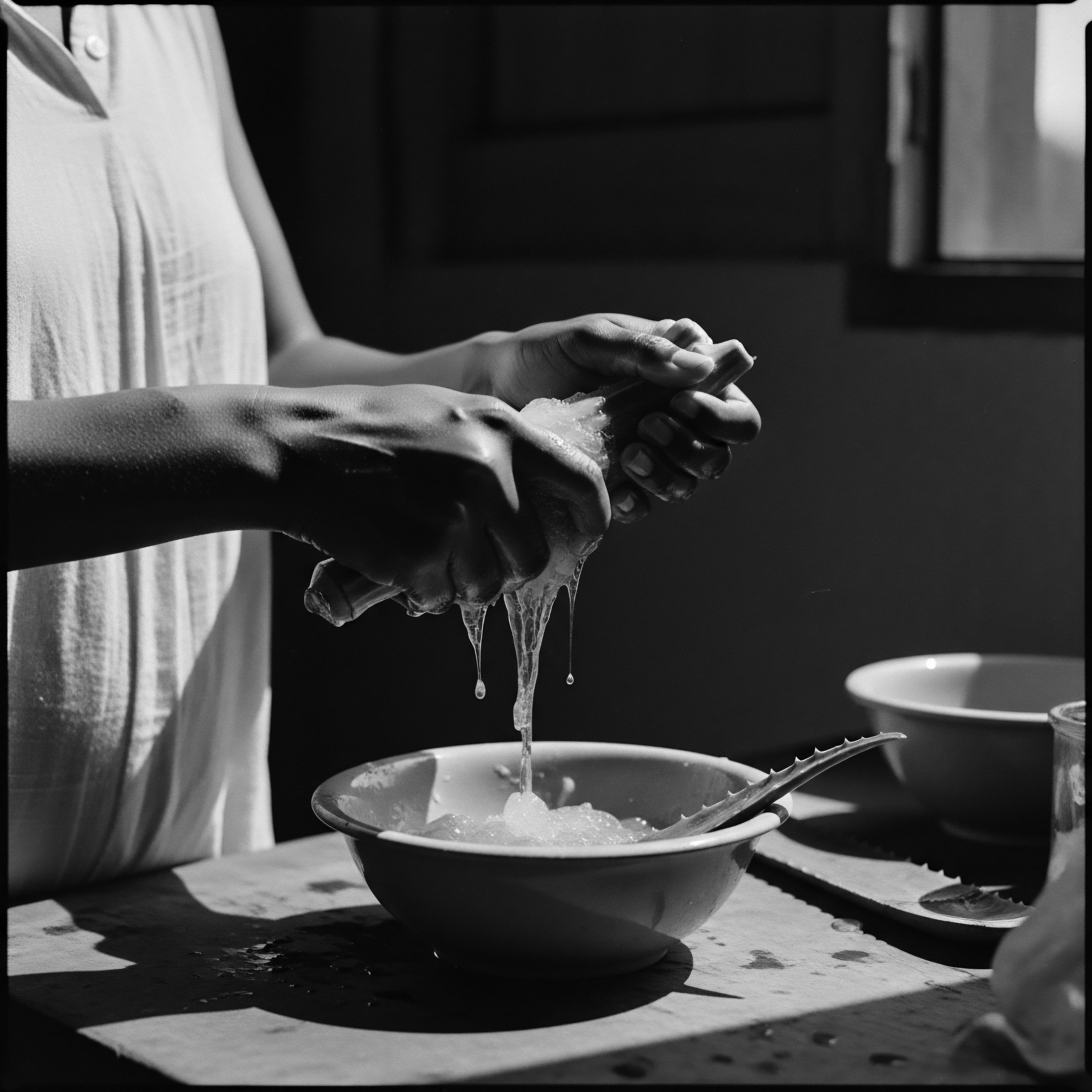
Intermediate
Building upon the foundational understanding of Eugenol’s inherent properties, its meaning expands into the more intricate interplay between these attributes and the specific needs of textured hair. The complex architecture of coils and curls, while beautiful, often presents unique challenges: the natural oils struggle to travel down the hair shaft, leading to dryness; the delicate scalp can be more prone to irritation from manipulation or environmental factors; and the very structure of the strand can be more susceptible to breakage. Here, the elucidation of Eugenol Benefits becomes particularly resonant, offering a bridge between ancestral practices and contemporary textured hair care.
The antimicrobial and antifungal qualities of Eugenol take on amplified significance for individuals with dense hair textures. Scalps can become a warm, moist environment, potentially conducive to the proliferation of microorganisms that lead to common concerns such as dandruff or folliculitis. The regular use of clove-infused preparations, whether as rinses or oil blends, reflects an inherited understanding of the need for a clean, harmonious scalp environment to support healthy growth. This strategic application of a natural element to address specific dermatological concerns is a testament to the intuitive wisdom passed down through generations.
Moreover, the anti-inflammatory capacities of Eugenol offer solace to scalps that have perhaps endured years of tension from intricate styling or the harshness of certain products. The tenderness with which many traditions approach hair care, viewing the scalp as fertile ground, aligns perfectly with Eugenol’s ability to soothe and restore balance. The experience of a calm, comfortable scalp allows hair follicles to function optimally, unhindered by inflammation that can otherwise impede the natural growth cycle. This thoughtful application of Eugenol-rich botanicals moves beyond mere cosmetic enhancement; it becomes a practice of nurturing, of listening to the subtle needs of the hair and scalp.
Eugenol Benefits for textured hair extend to alleviating specific challenges like scalp irritation and dryness, often by enhancing circulation and providing a protective, balanced environment for coils and curls.
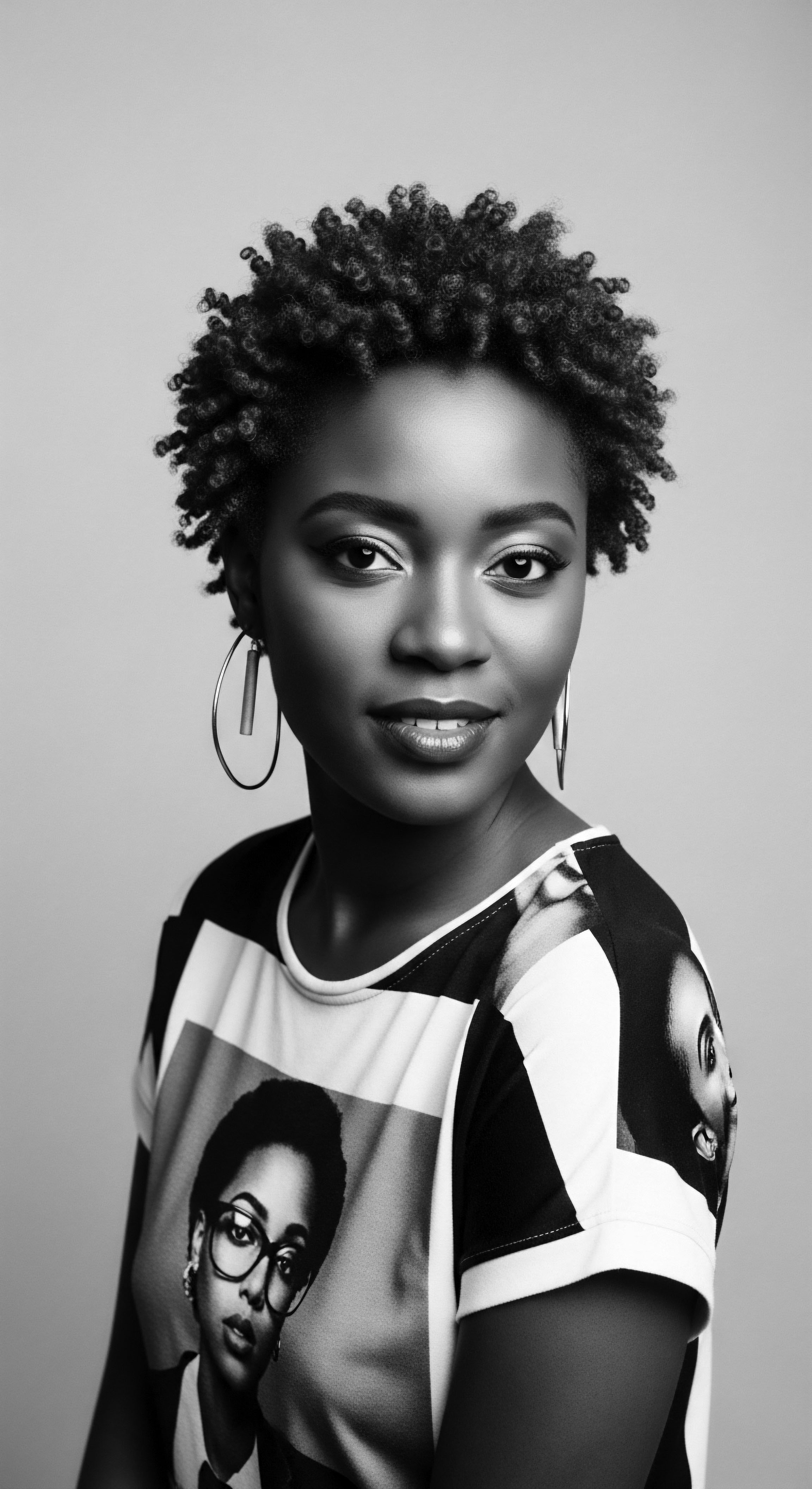
The Tender Thread: Living Traditions of Care
Across the diverse landscapes of the African diaspora, and indeed, within various ancient global cultures, the practice of caring for hair was seldom a solitary act. It was, and remains, a communal ritual, a moment of connection, and an expression of identity. The incorporation of natural ingredients into these rituals often carried layers of meaning, stemming from observed efficacy and a deep respect for the earth’s offerings. The significance of Eugenol, specifically from cloves, finds a poignant place within these living traditions.
In many African communities, and among descendants in the Caribbean and the Americas, hair care was intrinsically linked to medicinal knowledge. Plants with potent properties were not just food or decoration; they were medicine for the body and spirit. While direct historical documents explicitly detailing “Eugenol” usage in pre-colonial African hair rituals are scarce (as scientific nomenclature is modern), the extensive use of clove and other Eugenol-containing plants in traditional African medicine for anti-inflammatory, antimicrobial, and pain-relieving purposes is well-documented.
This foundational knowledge of a plant’s healing power naturally extended to its application for scalp and hair ailments. For instance, the use of spice-infused oils for massaging the scalp and protecting hair, a practice seen in various African and diasporic communities, would inherently transfer the properties of Eugenol to the hair and scalp.
One such practice, often found in various parts of West Africa and among their descendants, involved creating nutrient-rich infusions or salves using a variety of botanicals. These preparations aimed to soothe the scalp, encourage growth, and maintain the strength of hair that was frequently styled in protective forms. The inclusion of cloves, whether whole or crushed, in such formulations would have contributed their inherent properties, aiding in warding off scalp infections and reducing inflammation, issues common in environments with varying climates and styling practices. This ancestral application speaks to an intuitive understanding of the benefits Eugenol offers, long before its chemical name was known.

Ancestral Practices and Eugenol’s Quiet Presence
The historical use of natural ingredients in hair care is not merely anecdotal; it represents a deep, observational science. In ancient North Africa and parts of the Middle East, a practice known as henna application often incorporated various spices and herbs to enhance both color and scalp health. While henna itself is the primary dyeing agent, accompanying ingredients like cloves or clove oil were sometimes added to formulations for their aromatic qualities and perceived health benefits. This inclusion would have quietly introduced Eugenol’s properties, contributing to a holistic treatment that went beyond aesthetics.
Consider the historical context of West African communities, where meticulous hair practices were central to identity and well-being. Hair was adorned, styled, and treated with ingredients available from their immediate environment. The knowledge of which plants soothed, which cleansed, and which promoted strength was passed through oral tradition.
While not explicitly named “Eugenol-rich,” any preparation containing cloves, a spice known to have traveled along ancient trade routes, would have carried its properties. The importance of healthy, resilient hair for daily life, including strenuous labor or elaborate cultural ceremonies, meant that remedies for common scalp irritations or hair fragility were vital.
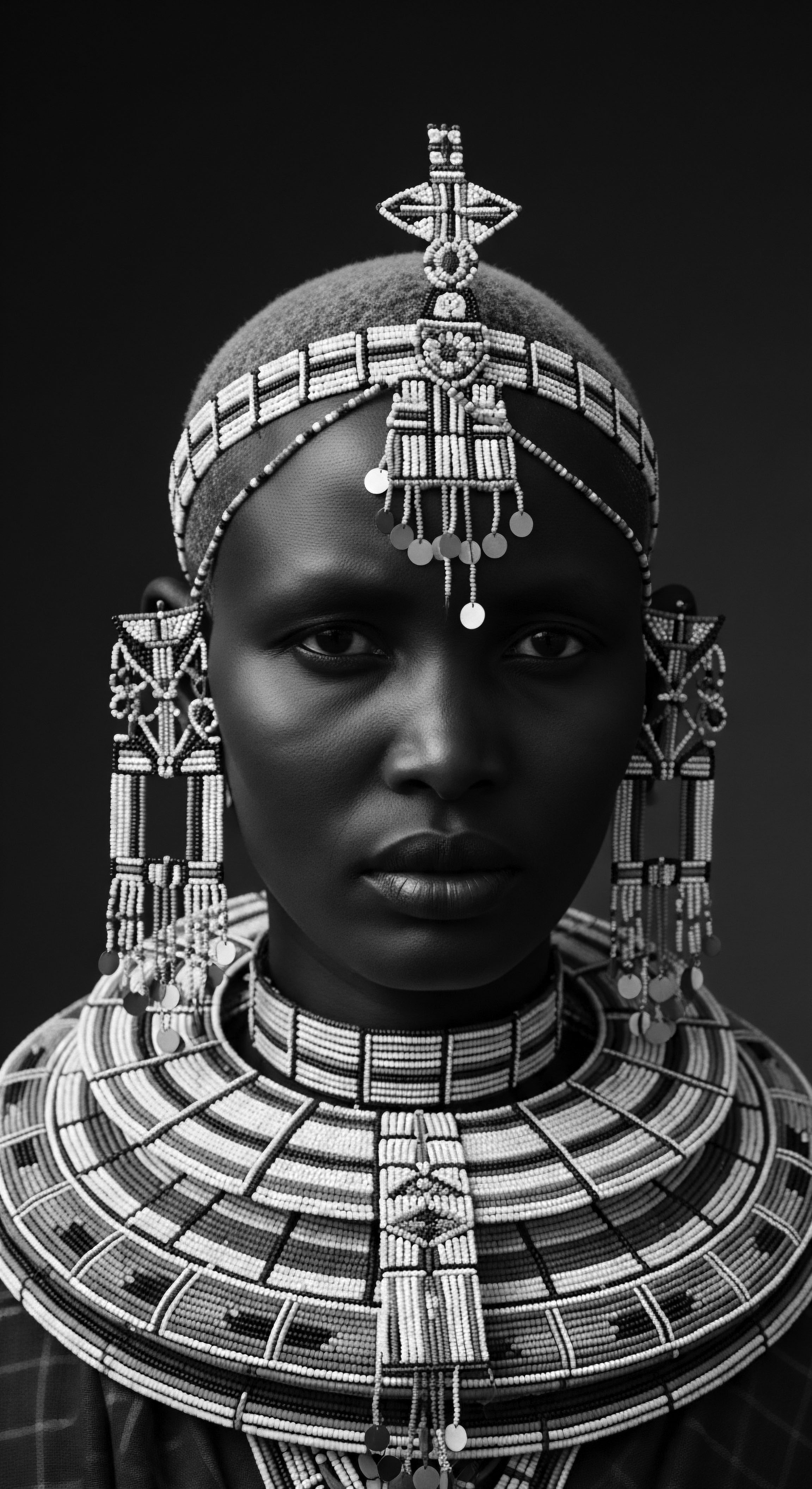
Academic
The academic definition of Eugenol Benefits transcends rudimentary descriptions, delving into its precise pharmacological actions and their implications for hair biology, particularly within the context of textured hair’s unique physiological requirements. Eugenol, identified as 4-allyl-2-methoxyphenol, is a naturally occurring phenolic compound, a primary component of clove essential oil, where its concentration can reach approximately 70%. This high concentration positions Eugenol as a significant contributor to clove’s therapeutic profile, lending scientific credence to millennia of anecdotal wisdom concerning its application in wellness practices.
Its molecular structure underpins its multifaceted biological activities, which are increasingly illuminated by contemporary dermatological and phytochemical research. The examination of Eugenol Benefits from an academic perspective requires an appreciation for its intricate interplay with cellular pathways and microbial ecosystems pertinent to scalp health and hair follicle function.
From a scientific standpoint, the beneficial attributes of Eugenol for hair are rooted in its demonstrable antioxidant, anti-inflammatory, and antimicrobial properties. Oxidative stress, characterized by an imbalance between free radicals and the body’s antioxidant defenses, can lead to cellular damage in hair follicles, accelerating the aging process of hair and contributing to conditions such as androgenetic alopecia and premature graying. Eugenol, as a potent free radical scavenger, effectively mitigates this oxidative damage, thereby preserving the integrity of follicular cells and supporting robust hair growth. This protective function is particularly salient for textured hair, which can be vulnerable to environmental aggressors and mechanical stress, necessitating enhanced cellular resilience.
The role of inflammation in hair loss pathologies, including conditions like seborrheic dermatitis and scalp psoriasis, is well-established. Eugenol exhibits significant anti-inflammatory effects, primarily by modulating various inflammatory mediators and pathways, such as the nuclear factor-kappa B (NF-κB) expression. By attenuating inflammatory responses within the scalp, Eugenol helps to create an optimal microenvironment for hair follicle activity, reducing discomfort and minimizing impediments to the hair growth cycle. This capacity for localized inflammation reduction underscores a critical aspect of its efficacy in supporting scalp vitality for diverse hair types.
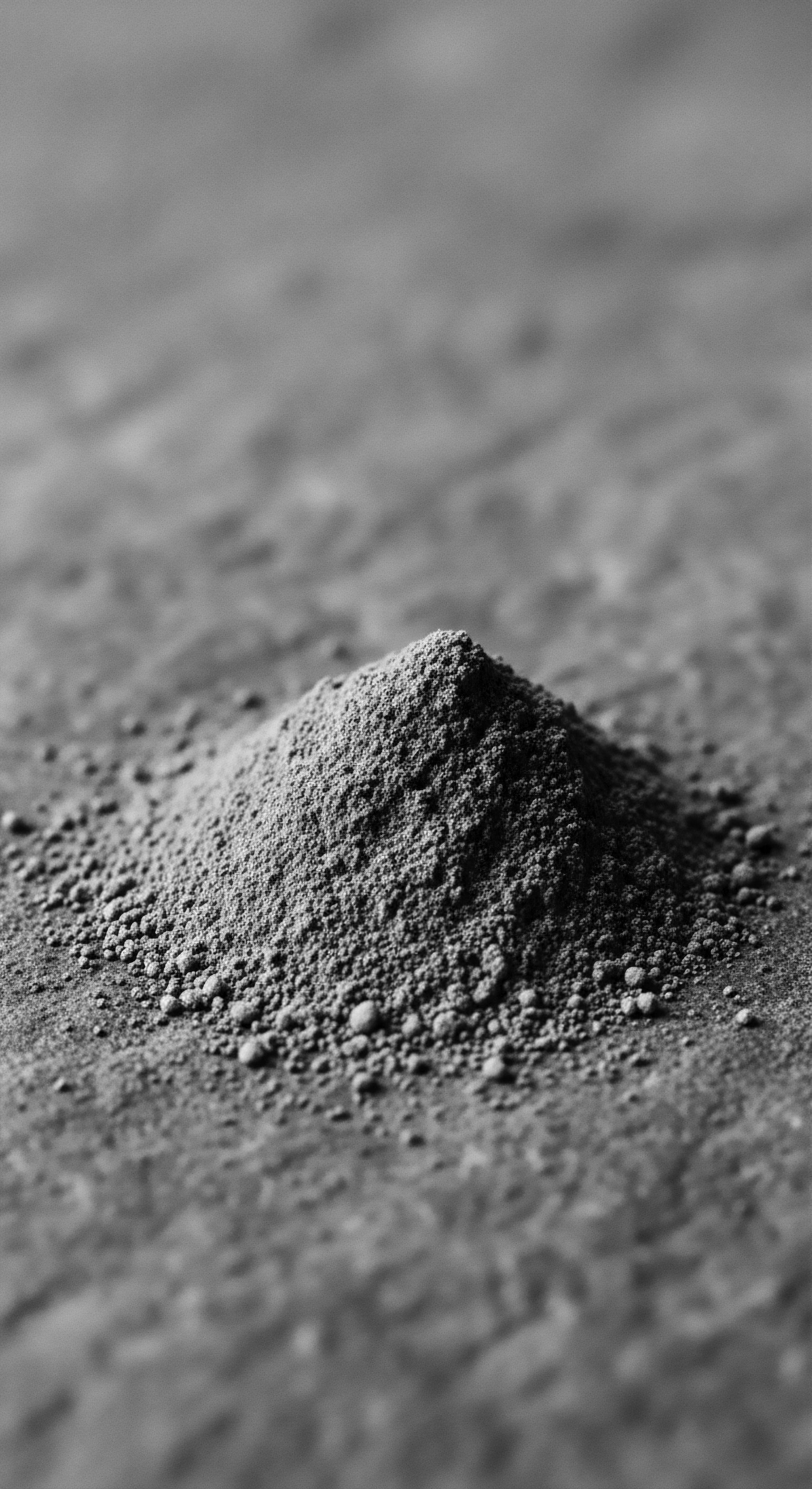
Phytochemical Sophistication: Eugenol’s Mechanisms
The scientific delineation of Eugenol Benefits for hair and scalp health extends to its sophisticated biological mechanisms. Beyond its generalized antioxidant and anti-inflammatory roles, specific studies have investigated its direct impact on hair follicles and the microbial landscape of the scalp. The growth of new hair is intrinsically linked to healthy blood circulation to the scalp, ensuring adequate delivery of oxygen and essential nutrients to the hair follicles. Eugenol has been shown to improve microcirculation, thereby indirectly promoting follicular activity and encouraging stronger, more vibrant hair.
Furthermore, one of Eugenol’s key contributions lies in its antimicrobial spectrum, which includes efficacy against fungal agents such as Malassezia furfur, a yeast commonly associated with dandruff. A study, “Anti-inflammatory and Antimicrobial Activities of Fermented Ocimum sanctum Linn. Extracts Against Skin and Scalp Microorganisms,” published on ResearchGate, provides compelling data. In this research, a fermented extract containing Eugenol demonstrated fungal inhibition against Malassezia furfur equivalent to that of ketoconazole , a widely used antifungal medication.
This powerful substantiation offers a scientific validation of traditional practices that utilized Eugenol-rich botanicals for scalp conditions, affirming the ancestral wisdom that recognized the cleansing and balancing properties of such ingredients. It suggests that these time-honored remedies possessed an empirically observed efficacy, now understood through the lens of modern microbiology. The exploration of its antimicrobial qualities, extending to various bacterial strains, positions Eugenol as a comprehensive agent for maintaining scalp hygiene, a cornerstone of hair wellness particularly crucial for textured hair which often requires protective styling that can sometimes create occlusive environments.
A noteworthy investigation into Eugenol’s direct impact on hair growth and conditioning was conducted by Sadat-Hosseini et al. in their 2016 study, “Preparation and evaluation of clove oil in emu oil self-emulsion for hair conditioning and hair loss prevention,” published in the Journal of HerbMed Pharmacology. This research specifically sought to develop a hair care formulation incorporating Eugenol, recognizing that Eugenol, comprising approximately 70% of clove essential oil, “shows an androgenic activity and stimulates hair root to feed and hence could be a good candidate for developing an anti-hair loss formulation”. The study meticulously evaluated an Eugenol-containing formulation on rats, comparing its efficacy to minoxidil, a standard treatment for hair loss.
The results indicated that the Eugenol formulation demonstrated conditioning and grooming properties, coupled with enhanced hair growth , albeit with a slightly longer initial lag time compared to minoxidil before acceleration. This evidence offers a robust academic grounding for the traditional claims of clove’s ability to promote hair vitality and mitigate hair loss. It highlights the potential of naturally derived compounds like Eugenol to serve as effective agents in contemporary hair care, validating the deep understanding inherent in ancestral cosmetic practices.
Academic research affirms Eugenol’s capacity to significantly improve scalp and hair health through proven anti-inflammatory, antioxidant, and antimicrobial actions, validating centuries of ancestral use.

The Unbound Helix: Voicing Identity and Shaping Futures
The meaning of Eugenol Benefits, when viewed through the unique lens of textured hair heritage, transcends mere biochemical interactions; it speaks to the deep connection between ancestral knowledge, identity, and the very act of caring for one’s hair. For communities of Black and mixed-race individuals, hair is a living archive, carrying stories of resilience, creativity, and self-expression through generations. The enduring presence of natural ingredients, like those containing Eugenol, in their hair care rituals is a powerful affirmation of this heritage.
The historical context of hair care for people of African descent is profoundly significant. During periods of enslavement and colonialism, efforts were often made to strip individuals of their cultural identity, including their hair practices. Yet, ancestral knowledge of plants and their uses persisted, secretly passed down, becoming a quiet form of resistance and self-preservation. The sustained use of botanicals like cloves, known for their healing and strengthening properties, speaks to a continuity of care that honored the natural form of their hair.
The choice to utilize natural elements, perhaps for their efficacy in managing common scalp issues or encouraging healthy growth, was intrinsically tied to a desire to maintain well-being and a sense of self in the face of adversity. This profound connection is a powerful testament to the substance of these historical practices.
The contemporary natural hair movement, a reclaiming of textured hair in its authentic forms, finds resonance in this historical backdrop. It is not merely a stylistic preference; it is a movement rooted in self-acceptance, cultural pride, and a re-engagement with ancestral practices. The renewed interest in ingredients such as clove oil, rich in Eugenol, symbolizes a homecoming ❉ a return to methods that prioritize the inherent health of the hair and scalp, methods that were once foundational to their forebears.
The understanding that science can now illuminate the ‘why’ behind these traditional remedies only deepens the appreciation for the ingenious foresight of ancestral healers and caregivers. This confluence of historical insight and modern validation reinforces the powerful meaning of Eugenol Benefits as a bridge between past wisdom and future well-being.
Consider the deep-seated cultural significance of hair for many Indigenous African and diasporic communities. Hair was, and remains, a marker of identity, status, spirituality, and lineage. Rituals involving hair care were often communal, fostering connections and reinforcing familial and community bonds.
The shared experience of preparing and applying natural treatments, even simple clove-infused waters, created a tangible link to heritage. This collective application of care, drawing from the bounties of nature, embodies a profound cultural memory, where every strand tells a story.
The ongoing global conversation surrounding decolonizing beauty standards and celebrating diverse hair textures continually finds strength in such historical validations. The specific elucidation of Eugenol’s scientific benefits serves to uplift and authenticate practices that were once dismissed or relegated to ‘folk remedies’. When a scientist confirms that the clove oil used by a great-grandmother to soothe an irritated scalp indeed possesses powerful anti-inflammatory and antimicrobial properties, it creates a powerful narrative of affirmation. It is a narrative that supports current generations in their quest for authentic self-care, grounding their practices in a heritage of knowledge that is both ancient and perpetually relevant.
- The Preservation of Traditional Knowledge ❉ The study of compounds like Eugenol helps to document and preserve traditional botanical knowledge, translating ancient wisdom into a language understandable by modern science. This process ensures that the wisdom of ancestral healers does not fade but instead finds new avenues for appreciation and application.
- Empowerment through Informed Choice ❉ Understanding the scientific basis of Eugenol’s efficacy empowers individuals to make informed choices about their hair care regimens, selecting natural ingredients with confidence. This agency allows for a reconnection with heritage, where self-care is a deliberate act of honoring ancestral lineages and practices.
- Bridging Disciplinary Divides ❉ The interdisciplinary study of Eugenol, merging ethnobotany, pharmacology, and cultural history, fosters a richer understanding of holistic well-being. This convergence highlights how traditional ecological knowledge and scientific inquiry can mutually enrich one another, creating comprehensive solutions for hair health that are culturally sensitive and scientifically sound.
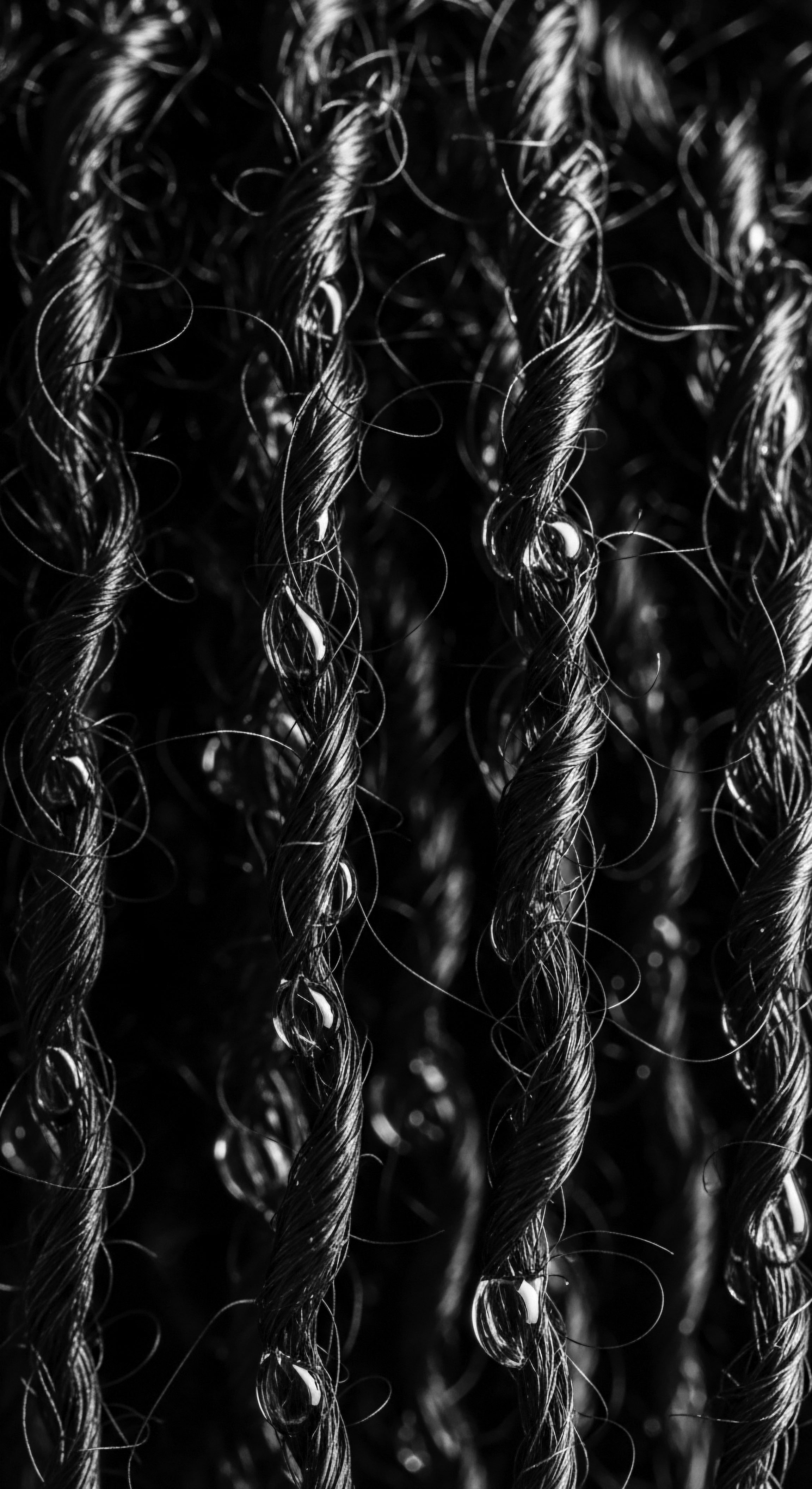
Reflection on the Heritage of Eugenol Benefits
The journey through the intricate world of Eugenol Benefits, from its elemental biological structure to its profound cultural and historical resonance, is akin to tracing the intricate patterns of a cherished family heirloom. It is a meditation upon how a simple compound, abundant in the spice of cloves, has quietly held a place of honor within the hands and hearts of those who have tended to textured hair across epochs and geographies. This exploration reveals a truth that echoes deeply within the soul of a strand: the wisdom of the past is not merely a relic, but a living, breathing guide to nurturing ourselves today. The enduring significance of Eugenol, perceived through the collective memory of traditional healing, finds its contemporary affirmation in scientific inquiry.
This continuity of understanding, where ancient practices intuitively harnessed what modern research now explicates, reminds us that the quest for true well-being is a timeless dialogue between the wisdom of our ancestors and the discoveries of our present. It underscores that caring for our hair, particularly textured hair, remains a sacred act, connecting us to a rich heritage of resilience, knowledge, and self-love.

References
- Sadat-Hosseini, A. et al. “Preparation and evaluation of clove oil in emu oil self-emulsion for hair conditioning and hair loss prevention.” Journal of HerbMed Pharmacology, vol. 5, no. 2, 2016, pp. 72-77.
- Batiha, G. E. S. et al. “Syzygium aromaticum L. (Myrtaceae): Traditional Uses, Bioactive Chemical Constituents, Pharmacological and Toxicological Activities.” Biomolecules, vol. 10, no. 3, 2020, p. 491.
- Chaiyana, W. et al. “Anti-inflammatory and Antimicrobial Activities of Fermented Ocimum sanctum Linn. Extracts Against Skin and Scalp Microorganisms.” ResearchGate, 2024.
- Nisar, G. F. et al. “Pharmacological properties and health benefits of eugenol: a comprehensive review.” ScienceOpen, 2021.
- Bird, S. R. Motherland Herbal: The Story of African Holistic Health ❉ A Comprehensive Guide to African Herbal Medicine, Holistic Wellness, and Spiritual Connection. Llewellyn Worldwide, 2021.
- Adodo, A. Nature Power: An Herbal Medicine Recipe Handbook for Holistic Health. Paxherbals, 2020.
- Groves, C. M. Sr. and Asare, B. K. Chosen to Heal: African Traditional Health Care As a Way of Life. Bookstand Publishing, 2016.
- Roseborough, I. E. and McMichael, A. J. “Hair care practices in African-American patients.” Seminars in Cutaneous Medicine and Surgery, vol. 28, no. 2, 2009, pp. 103-108.
- Boucherit, H. et al. “Ethnobotanical study of Hammada scoparia (Pomel) Iljin in the region of Naâma (south-western Algeria).” Arabian Journal of Medicinal & Aromatic Plants, 2015.
- Almuziny, M. “Clove (Syzygium aromaticum) Extract has Antibacterial and Antifungal Effects against Human Scalp Microbes.” Asian Journal of Biological and Life Sciences, vol. 13, no. 2, 2024.



